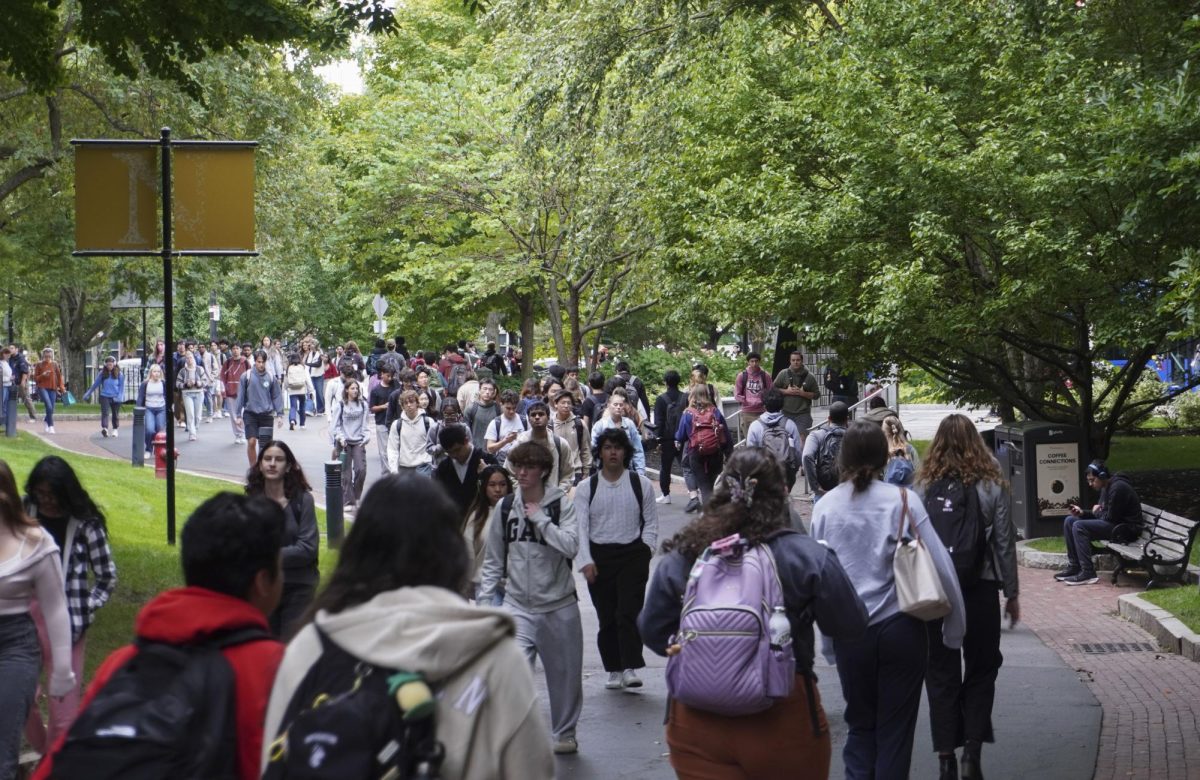At first glance, I was very excited that Northeastern students were so eco-friendly and proactive in doing their part to recycle (“Northeastern out-recycles the City of Boston,” Feb. 25). As I read further into the article, though, I was upset to find that residents of the city of Boston recycle very little – only 12 percent of its waste. Even worse, out of the major universities in the Boston area, Northeastern’s percent of recycled material was sufficiently lower than that of other schools, including Harvard and MIT.
Yet at a time when environmental issues are of such great importance, there is no reason that Northeastern should be complacent with the current situation. Just because we recycle double the amount of Boston does not qualify that as some sort of grandiose accomplishment. There is no reason that Northeastern could not increase its recycling percentage to match that of MIT and Harvard.
Northeastern has recycling bins in every on-campus housing complex and throughout campus. The dining halls are doing their part to recycle food waste into compost as well. We have active, environmentally aware student groups, including the Husky Energy Action Team, which campaigns for other environmental issues including alternative energy sources. This is a reasonable goal backed by good intentions that would not involve too much extra effort to accomplish.
Although it seems like such an easy goal to achieve, Boston, along with Northeastern, has a long way to go.
I researched further and discovered that in 2007, Country Home Magazine ranked the top green cities in the United States; Boston was ranked number 121.
Yet just across the Charles River the rankings rose dramatically. Cambridge comes in at number 67 on the list. Springfield even makes it into the top 10 coming in at number four. Well, you may think this is just how it is – larger cities make more waste. Yet other larger cities are making great efforts to reduce their waste.
New York City has recently started a plastic bag recycling program which encourages the reuse of plastic bags, which take up to 1,000 years to break down. Some cities have outlawed them completely.
As college students, many of us are diligently striving for success in academics and on co-op. We understand that in order to secure a promising future we must work hard now. Yet when it comes to the environment and the future of our planet, why are we so lazy? If we stop thinking short-sightedly about ourselves and focus on the larger picture, we won’t find any real barriers to recycling other than our own laziness.
Just think, if every student remembered to recycle all the papers he or she accumulates – essays, review sheets, exams, etc. – it could make a huge difference.
I hope that in the future we see an increase in people concerned about the well-being of the environment. It is important we remember that although most of us would not categorize the concrete jungle of Boston as a piece of nature, it is. Everything we do here, including choosing or not choosing to recycle, impacts the sanctity of nature around the country.
– Caitlin Gambee is a junior journalism major.









